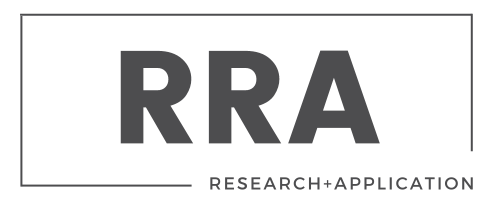Individual applications are invited for the position of Editor of the peer-reviewed Review of Religious Research (RRR), a journal of the Religious Research Association (RRA), published by Sage. The official term for the new editor will begin on January 1, 2026. The editor’s term is three years, until December 31, 2028, with possible reappointment.
RRR is published four times (4) per year: September, December, March and June. Articles include original and innovative peer-reviewed empirical social science research on religion, primarily in the areas of sociology, social psychology and psychology. It also publishes denominational research report summaries and solicited book reviews.
RRR provides a forum for research across multiple themes and approaches, including new religious movements, dynamics of denominational and congregational growth, individual and organizational variations in beliefs and practices, relation between personal spirituality and institutional religious involvement, conflict within congregations and denominations, religious experience, ethnic religious groups, religion and family life, religion and political behavior, and comparative analyses of religious behavior and institutions.
Among the characteristics that distinguish RRR from other academic journals on the study of religion are its applied focus and the opportunities it offers for academics and denomination- based researchers to share their findings with each other. RRR aims to facilitate the sharing and comparing of applied studies between denominational and academic researchers.
Editor’s Role: RRR typically receives more than 200 original paper submissions per year. The Editor is expected to secure timely and appropriate reviews and make the final decision on manuscripts, informing both the author(s) and reviewers of the final disposition. The Editor is also responsible for maintaining the high standards, ensuring that issues are filled within the annual page allotments and preventing a long backlog of articles for either review or publication. The Editor must show openness to communicating with scholars about diverse ideas and eagerness to continue building the journal’s reputation.
The Editor is a voting member of the Board of Directors of the RRA and is expected to report both in person and in writing at the annual meeting of the RRA Board of Directors that is normally held one day prior to the RRA annual meeting and at such other times as may be set by the Board. The Editor is provided up to $2,000 in travel reimbursements to support their attendance at the annual meeting.
The Editor is responsible for selecting a Book Review Editor (BRE) and is accountable for their performance. The Editor may change BREs as deemed necessary. The BRE is responsible for soliciting authors to write reviews of 500-800 words on books relevant to the mission of RRA. It is expected that each issue of the journal will include three to five book reviews. The BRE receives an annual stipend of $2,000. Any expenses incurred by the BRE are charged against the Editor’s expense budget. The BRE is not a member of the Board of Directors nor do they attend its meetings.
The Editor has an annual budget of $12,500, which is inclusive of the editor’s annual stipend and any expenses incurred for the journal, such as office supplies and secretarial support.
Time Requirements: The position of Editor involves a significant, continuous investment of time. Applicants with academic appointments and heavy teaching loads will be asked to arrange for at least a single course (1) reduction as a condition of application. Applicants without academic appointments should have equivalent adjustments. In addition, the Editor should be available throughout the year at a specific location without extended absences of more than 2–3 weeks at a time.
Selection Process: (1) Applications will be reviewed by the Religious Research Association’s Publications Committee, Executive Director, and President beginning May 1, 2025. That committee will submit a ranked list of candidates to the Religious Research Association Board of Directors. (2) The Board will vote to select a new editor. (3) RRA Executive Officer Gina Zurlo will notify the selected candidate by June 1, 2025. The new editor will begin a four-month period of overlap with the existing editor from September 1 to December 31 before taking responsibility for the journal on January 1, 2026. The new editor will be paid a stipend of $4,000 for the four-month transition period.
Applications: The applications should include the following:
- Vision Statement: Set forth your goals and plans for the content of the journal. This may include an assessment of the current strengths, weaknesses, or gaps that you plan to address and how you will carry out your plan (suggested 2–3 pages).
- Editor Background Information: Describe the qualifications that support your application, including established record of scholarship, affiliation(s) and evidence of organizational skill and experience in intellectual leadership (suggested 2–3 pages).
- Institutional Support: It is important for candidates to examine the feasibility of serving as Editor in light of the resources provided by the publisher and the home institution. A preliminary letter of support from a dean or other appropriate institutional official is requested. Specific negotiations will of course take place after a new editor is selected. This letter must be included for the application to be considered and should contain a specific statement of the level of support to be provided by the institution (suggested 1 page).
For further information about the position or application process, please contact RRA Executive Officer Gina Zurlo at executive.officer@rraweb.org.
Submission: The application packet (including items 1–3 above) should be no more than 7–8 pages (excluding CV) and must be received by May 1, 2025.
The application packet should be emailed as a single PDF document to RRA Publications Committee Chair Rachel Bacon at rbacon@mindandculture.org.
